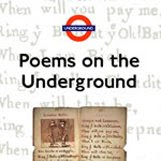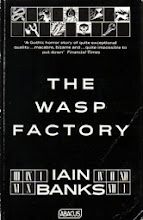I first saw this book on the Bloomsbury website and thought that it had an unusual premise that promised to be touching as well as different. I was also drawn to a modern story set in China.
A happily married business man is badly injured in an explosion at a hotel when a shard of glass hits him in the head. Following emergency brain surgery he eventually regains consciousness but can only speak rudimentary English, a language he left behind in America when he was 10 years old and has never spoken since. He can understand Chinese but no longer has the ability to form the words in order to speak them. His wife throws herself into taking care of their house, their son and his business. Unable to help him the hospital sends for a neurologist from America who specialises in such cases, to rehabilitate Li Jing to speak Chinese again. Dr Rosalyn Neal has her own reasons for wanting a break from back home and is battling her own demons. It is not long before doctor and patient become closer, sharing more than just a common language.
The chapters are told to us from each of the main protagonists point of view, with some shorter sections from Li Jing's son, Pang Pang, so that we are given a very rounded view and understand how each person is feeling during this complicated situation. The language is descriptive but straight forward to read, with a lot of exploration paid to how central language is to our communication as humans, not only the words said, but the pitch and expression of those words. How we use our language for courtship, or how it becomes part of our character, our own personal speech characteristics that others notice and like about us. Also there is the ease and speed of being understood. When this ability is taken away how much of us, and our relationships, can still be the same?
There were some very interesting themes in this book, a lot to consider when a skill many of us take for granted, is lost. However, as a novel, I wish I had liked it more. It took me ages to find a footing with the story to keep me going, and I did almost give up on it more than once. It seemed bogged down in endless description that had me willing it to get on with the job. I felt that the amount of detail at times was unnecessary and caused the book to plod significantly.
I also had issues with the characters, mainly Meiling, the wife. Her screaming reaction to her husband speaking English was akin to his eyeballs having fallen out and resting on the pillow beside him. She continually views him with disgust and disappointment, pulling her hand away if his brushes hers, not wanting to share the same room with him. He is clearly distressed and retreats within himself because of her reaction and lack of sympathy or support. Granted she is consumed by keeping their life together, but it is clear that the reason she spends so much time at his job, at the expense of time with her son, is because she loves it, the power and position, she gets off on it. When Doctor Neal arrives Meiling uses her to avoid contact with her husband, forcing them together. It is no wonder, in the absence of any loving care or affection, that he turns to Rosalyn Neal. Meiling is more than willing to learn about stock markets and shares, but makes no effort at all to learn to communicate with Li Jing, in English, sign language or anything. In fact she is unwilling to stay in his presence long enough to try. Her stoic emotionless face, and tailored black suits, are her whole personality, and here lies my other problem with the book...stereotypes.
Both of the women are heavily stereotyped, to represent the stiff and clinical Chinese, exact and proud, as opposed to the loud, bohemian American, who wears her heart on her sleeve, every thought and emotion expressed on her face. Rosalyn is free spirited, wears bright colours from ethnic markets, and laughs and cries in equal measures. Differences in national identity can be interesting, but not when it becomes so characatured as I found it here. People are so much more complicated than that, and Meiling especially I found difficult to accept. At least Rosalyn is quite likeable. It was hard to sympathise with Meiling, and yet the picture on the cover and the blurb on the back led me to believe she was the one to feel sorry for. I also found the ending wanting, but do not want to reveal too much here.
It is quite a shame that this book did not hit the mark with me. Book groups would find a lot to discuss and not everyone will agree with my view I am sure. Indeed I have read good and not so good reviews about it. Some of the exploration of the importance of language has provided thinking material, but sadly I do not feel this one will stay with me.
Bloomsbury have a Reading Guide for the novel on their site.
Ruiyan Xu has her own site which gives you more information about her and what influenced the book.
Quote
The true university these days is a collection of books.
-Thomas Carlyle
-Thomas Carlyle
Friday 10 August 2012
The Lost and Forgotten Languages of Shanghai by Ruiyan Xu
Subscribe to:
Post Comments (Atom)
Hay on Wye
























1 comment:
I love this thought-provoking review. There are so many things here that intrigue me. The topic of language, and how it shapes our lives, fascinates me. I also enjoy novels from multiple perspectives and love writing that is descriptive and straightforward. Thanks!
Post a Comment